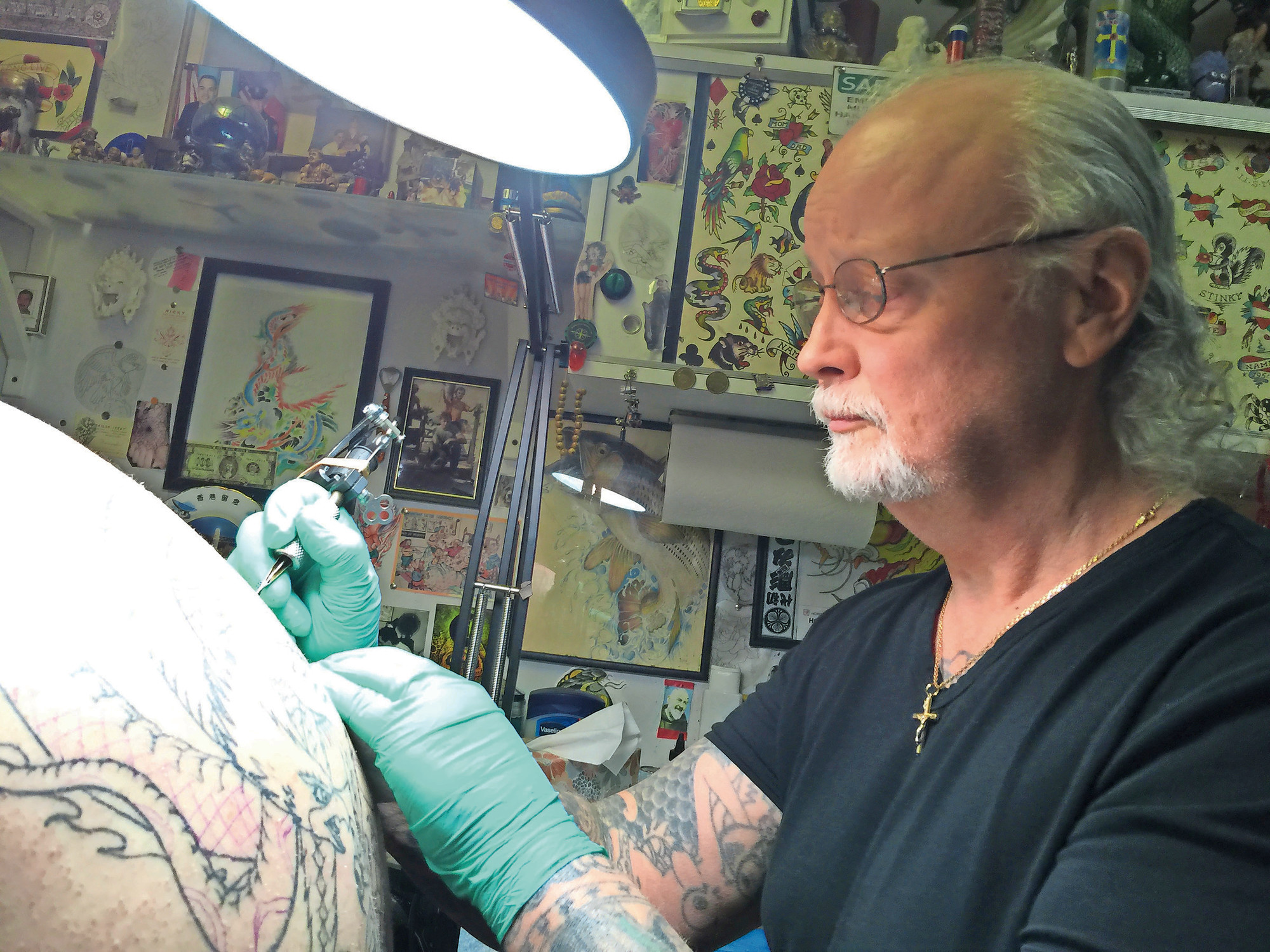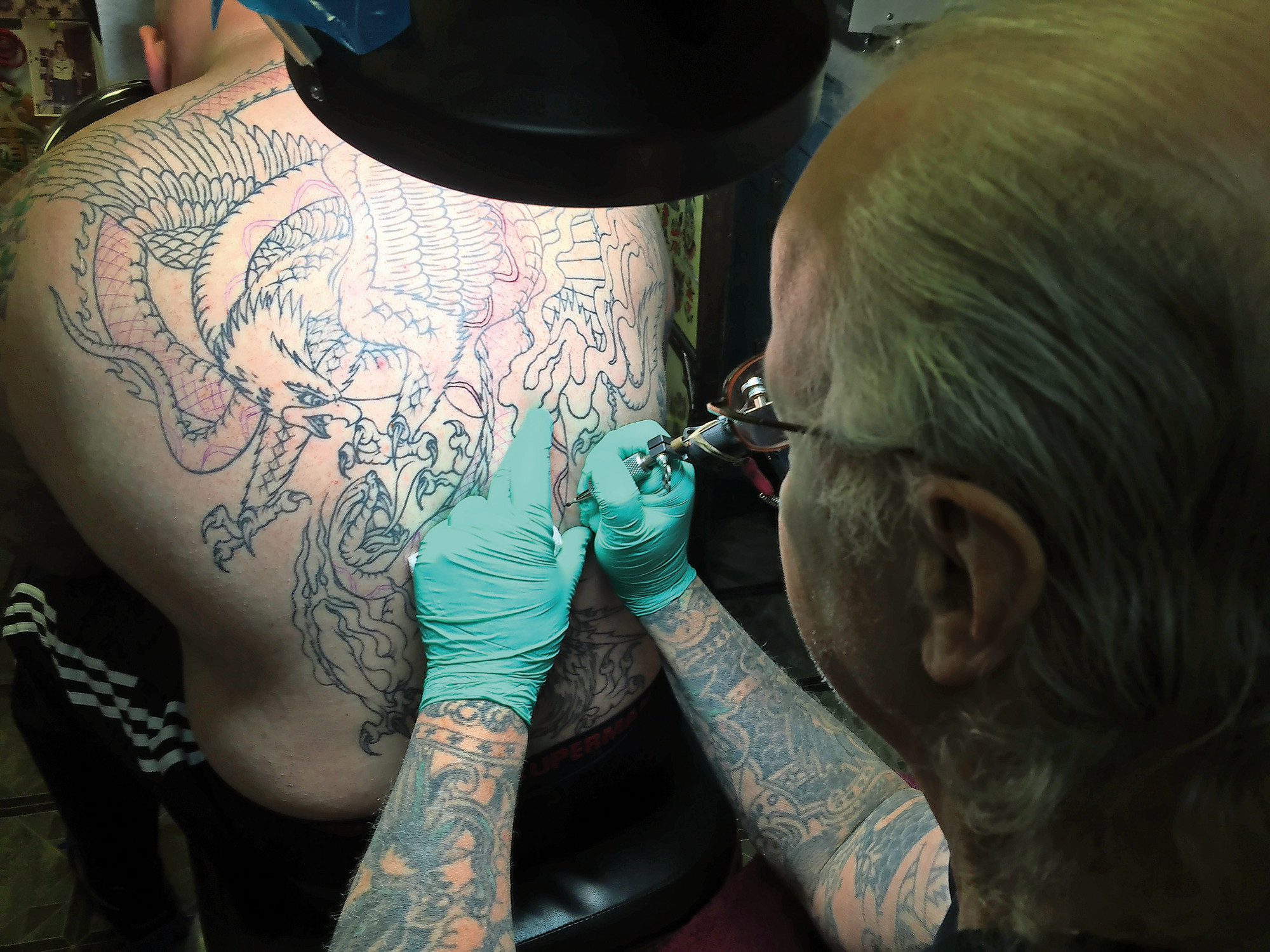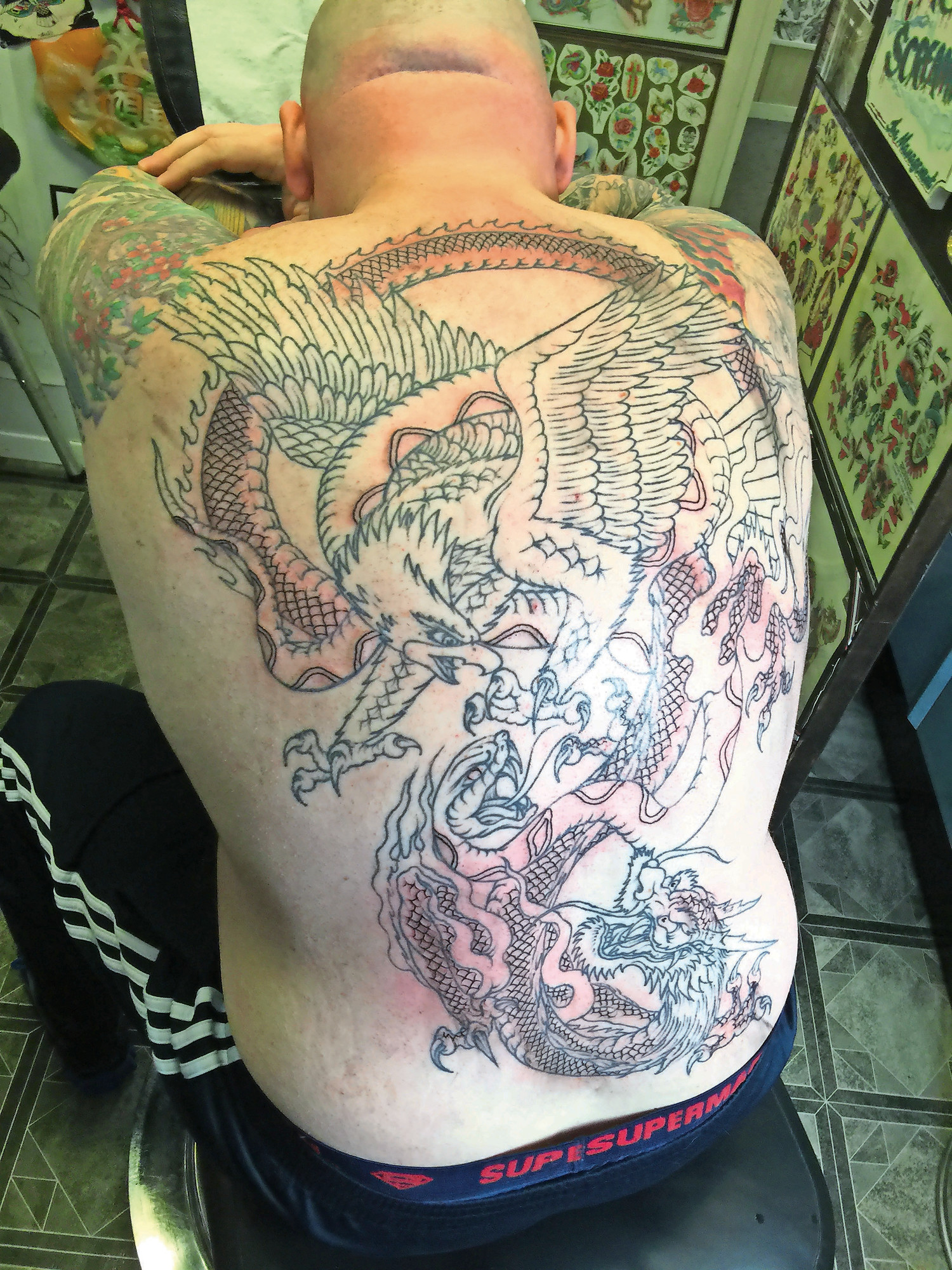An Elmont mainstay that shaped a scene
New York City will celebrate an odd anniversary on Feb. 25. The date will mark 19 years since the City Council passed a law legalizing commercial tattooing.
For the previous 36 years, the largest city in the country had banned tattoo parlors. There is no real documentation as to why the city took that stance in 1963. Some have speculated that it was related to the World’s Fair coming to Flushing in 1964, and city officials’ desire to clean up the area. Other say it was a Board of Health issue. Either way, the law led many tattoo seekers to head east to Long Island, where the practice was legal.
In the summer of 1971, then 16-year-old Richie Montgomery found his way into the underground world of New York City tattoo parlors. He and his friends found out about someone who was doing tattoos in Bayside, Queens.
“The guy said to me, ‘Are you 18?’ I said, ‘Of course I’m 18,’” Montgomery recalled. “I must’ve looked like a cherub, 16 years old and I didn’t have a hair on my face.”
But his word was enough ID for the tattoo artist, who “inked” Montgomery for the first time. When the session was over, he sported a baby devil on his left shoulder.
“I got that done, then three days later I got another one, then another,” Montgomery recounted gleefully. “My mother blew a fuse. My father was cool with it. My father was the one who gave me the money.”
The experience intrigued Montgomery. There was an element of mystique to tattooing. It was an underground operation, like something straight out of Prohibition. “That was the cool part of it — it was sort of like the bad-boy type of deal,” he said. “It was underground. It was like going to a speakeasy.”
This “speakeasy” was across the street from a police precinct, which only added to the magic in Montgomery’s mind. “We thought, man, are we going to get arrested for getting a tattoo?’” he said in a whisper, remembering the fear he and his friends felt. But the police weren’t strictly enforcing the ban, Montgomery said. They got involved only if a parent complained.











